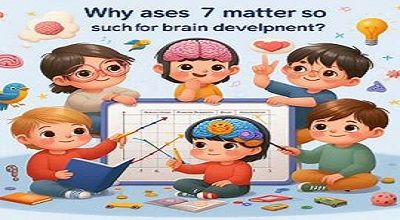Ages 2-7 Brain Development
Ages 2-7 are a critical period for brain development, and they are often referred to as the early childhood or preschool years. During this time, the brain undergoes significant growth and maturation, which has a profound and lasting impact on a child’s cognitive, social, and emotional development.
Several key factors contribute to the importance of these years for brain development:
- Rapid Brain Growth: The brain experiences a period of rapid growth during early childhood, with neural connections forming at an astonishing rate. This period is often referred to as the “critical period” because the brain is particularly malleable and responsive to environmental influences during this time.
- Language Development: Ages 2-7 are crucial for language development. Children acquire the foundational skills necessary for communication, vocabulary growth, and language comprehension. The extent to which a child develops these language skills during this period can significantly impact their future academic success and social interactions.
- Social and Emotional Development: Early childhood is a time when children learn important social and emotional skills. They develop empathy, self-regulation, and social interaction abilities, which are essential for forming healthy relationships and navigating the complexities of social situations throughout life.
- Cognitive Skills: The development of cognitive skills such as problem-solving, critical thinking, and memory also occurs rapidly during these years. Children’s brains are like sponges, absorbing information from their environment and experiences. These skills serve as the foundation for future academic and intellectual growth.
- Early Learning Experiences: The quality of a child’s early learning experiences has a significant impact on their brain development. Access to high-quality early childhood education, a stimulating home environment, and positive interactions with caregivers all contribute to a child’s cognitive and emotional development.
Extra Features…
- Neural Plasticity: The brain’s plasticity, or its ability to reorganize and adapt in response to learning and experience, is especially high during these years. This makes it an optimal time for children to acquire new skills, adapt to their environment, and build a foundation for lifelong learning.
- Long-Term Impacts: The neural connections and pathways established during this period have a lasting impact on a child’s cognitive abilities and overall development. The early childhood years lay the foundation for later learning and development, making them a critical phase in a person’s life.
- Vulnerability to Adverse Experiences: Conversely, during this period, the brain is also vulnerable to the negative effects of adverse experiences, including trauma, neglect, and toxic stress. Such experiences can have long-lasting detrimental effects on a child’s brain development and mental health.
Summary
In conclusion, ages 2-7 are a pivotal time for brain development due to rapid growth, language and cognitive skill acquisition, social and emotional development, and the lasting impacts on a child’s future. Providing a nurturing and stimulating environment during these years is crucial for setting a child on a positive trajectory for their lifelong development.
